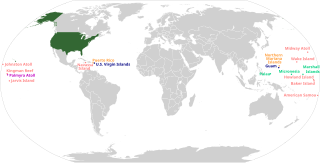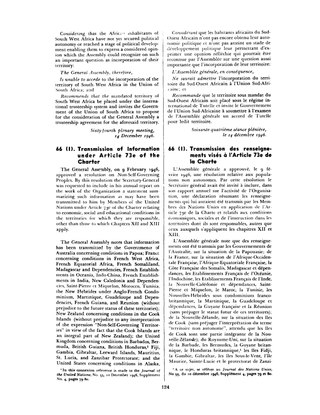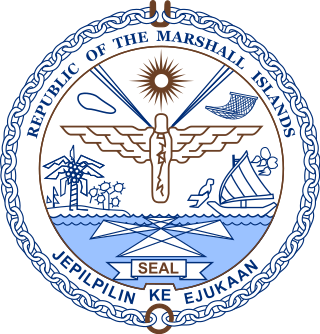An associated state is the minor partner in a formal, free relationship between a political territory and a major party—usually a larger nation.

The 51st state is an American political discourse term that refers to areas that are considered to be candidates for U.S. statehood, joining the current 50 states that have already been constituted in the United States since 1959. The phrase has been applied to external territories, as well as the country's capital for the District of Columbia and parts of already-existing states which would be admitted as separate states in their own right.
Commonwealth is a term used by two unincorporated territories of the United States in their full official names, which are the Northern Mariana Islands, whose full name is Commonwealth of the Northern Mariana Islands, and Puerto Rico, which is named Commonwealth of Puerto Rico in English and Estado Libre Asociado de Puerto Rico in Spanish, translating to "Free Associated State of Puerto Rico." The term was also used by the Philippines during most of its period under U.S. sovereignty, when it was officially called the Commonwealth of the Philippines.

The Compact of Free Association (COFA) is an international agreement establishing and governing the relationships of free association between the United States and the three Pacific Island sovereign states of the Federated States of Micronesia (FSM), the Republic of the Marshall Islands (RMI), and the Republic of Palau. As a result, these countries are sometimes known as the Freely Associated States.

Chapter XI of the United Nations Charter defines a non-self-governing territory (NSGT) as a territory "whose people have not yet attained a full measure of self-government". In practice, an NSGT is a territory deemed by the United Nations General Assembly (UNGA) to be "non-self-governing". Chapter XI of the UN Charter also includes a "Declaration on Non-Self-Governing Territories" that the interests of the occupants of dependent territories are paramount and requires member states of the United Nations in control of such territories to submit annual information reports concerning the development of those territories. Since 1946, the UNGA has maintained a list of non-self governing territories under member states' control. Since its inception, dozens of territories have been removed from the list, typically when they attained independence or internal self-government, while other territories have been added as new administering countries joined the United Nations or the General Assembly reassessed the status of certain territories.

The Gibraltar sovereignty referendum of 2002 was a referendum, called by the Government of Gibraltar and held on 7 November 2002 within the British overseas territory, on a proposal by the UK Government to share sovereignty of the territory between Spain and the United Kingdom. The result was a rejection of the proposal by a landslide majority, with little more than one per cent of the electorate in favour.

The Puerto Rico statehood movement aims to make Puerto Rico a state of the United States. Puerto Rico is an unincorporated territorial possession of the United States acquired in 1898 following the Spanish–American War, making it "the oldest colony in the modern world". As of 2019, the population of Puerto Rico is 3.2 million, around half the average state population and higher than that of 20 U.S. states. Competing options for the future political status of Puerto Rico include maintaining its current status, becoming fully independent, or becoming a freely associated state. Puerto Rico has held six referendums on the topic. These are non-binding, as the power to grant statehood lies with the US Congress. The most recent referendum was in November 2020, with a majority (52.52%) of those who voted opting for statehood.

A plebiscite was held in British Togoland on 9 May 1956 to decide the status of the territory. Since World War I, the territory had been a League of Nations mandate under British control, and became a United Nations Trust Territory after World War II. The referendum offered residents the choice of remaining a Trust Territory until neighbouring French Togoland had decided upon its future, or becoming part of soon-to-be Ghana. The Ewe-based Togoland Congress campaigned against and preferred amalgamation with French Togoland.

The political status of Puerto Rico is that of an unincorporated territory of the United States. As such, the island of Puerto Rico is neither a sovereign nation nor a U.S. state. Because of that ambiguity, the territory, as a polity, lacks certain rights but enjoys certain benefits that other polities have or lack. For instance, in contrast to U.S. states, Puerto Rico residents cannot vote in U.S. presidential elections nor can they elect their own senators and representatives to the U.S. Congress. On the other hand, in contrast to U.S. states, only some residents of Puerto Rico are subject to federal income taxes. The political status of the island thus stems from how different Puerto Rico is politically from sovereign nations and from U.S. states.

Constitutional Convention elections were held in the Marshall Islands in November 1976.
A referendum on the future status of the islands was held in the Trust Territory of the Pacific Islands on 8 July 1975. Voters were offered six options:
- Independence
- Commonwealth
- Free Association
- Statehood
- To retain the current status
- Another status
A referendum on the political status of Puerto Rico was held in Puerto Rico on November 6, 2012. It was the fourth referendum on status to be held in Puerto Rico. Puerto Rico has been an unincorporated territory of the United States since the Spanish–American War in 1898.
A referendum on political status was held in the Falkland Islands on 10–11 March 2013. The Falkland Islanders were asked whether or not they supported the continuation of their status as an Overseas Territory of the United Kingdom in view of Argentina's call for negotiations on the islands' sovereignty.

A referendum on holding separate negotiations on its future status was held in the Palau part of the Trust Territory of the Pacific Islands in September 1976. The proposal was approved by 88% of voters.

A referendum on the islands' status was held in the Northern Mariana Islands on 5 February 1961. Although 65% of voters supported integration with Guam, the United States did not integrate the islands.

An independence referendum for Chuuk State to secede from the Federated States of Micronesia was originally scheduled to take place in March 2015. However, it has been delayed three times and it is uncertain if it will take place. The most populous of the four states within the FSM, Chuuk has high levels of unemployment and there are long-standing tensions over the distribution of funding within the FSM. Other concerns include political power within the federation and the preservation of cultural identity.

The Constitution of the Marshall Islands is the supreme law of the Republic of the Marshall Islands, in force from 1 May 1979.
An independence referendum was held in New Caledonia, a French territory in the South Pacific, on 12 December 2021. The poll was the third and final to be held under the terms of the Nouméa Accord, following votes in 2018 and 2020, in which independence was rejected by 56.7% and 53.3% respectively.
The Marianas archipelago of the Northern Pacific contains fourteen islands located between Japan and New Guinea on a north–south axis and Hawaii and the Philippines on an east–west axis. Inhabitants were Spanish nationals from the 16th century until the Spanish–American War of 1898. As Guam became a territory of the United States the Northern Marianas were sold to Germany in 1899. The Northern Mariana Islands were a German protectorate until 1919, when they became part of the South Seas Mandate, administrated by Japan. At the close of World War II, the Marianas became part of the Trust Territory of the Pacific Islands. In 1975, the Commonwealth of the Northern Mariana Islands became a self-governing territory. In 1986, the Marianas came under the sovereignty of the United States when the trusteeship ended and US nationality and citizenship was conferred on the inhabitants of the territory.
Palauan nationality law is regulated by the 1980 Constitution of Palau, as amended; the 1994 Palau Citizenship Act, and its revisions; and international agreements entered into by the Palauan government. These laws determine who is, or is eligible to be, a national of Palau. The legal means to acquire nationality, formal legal membership in a nation, differ from the domestic relationship of rights and obligations between a national and the nation, known as citizenship. Palauan nationality is typically obtained either on the principle of jus soli, i.e. by birth in Palau or under the rules of jus sanguinis, i.e. by birth abroad to parents with Palauan nationality. It can be granted to persons with an affiliation to the country through naturalization.










